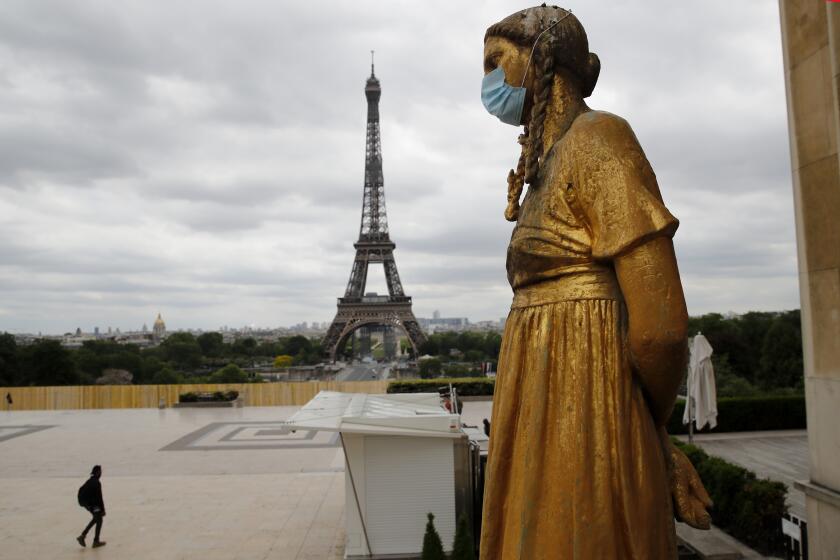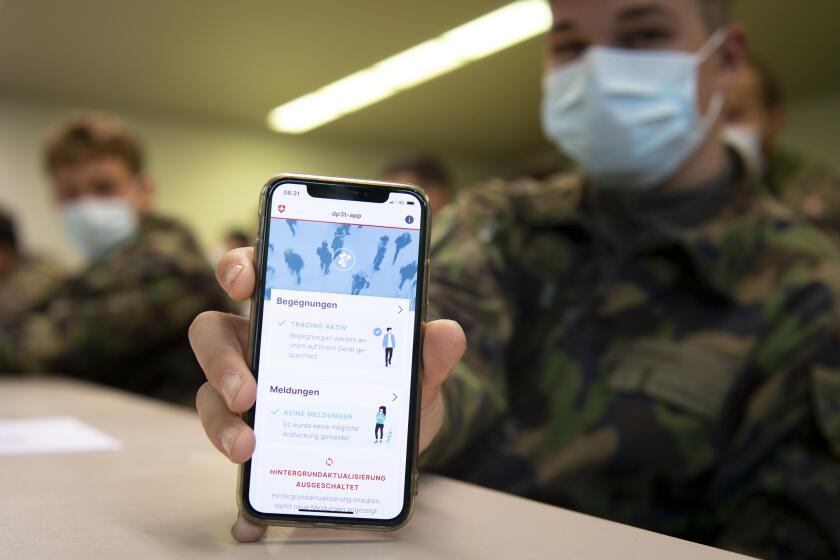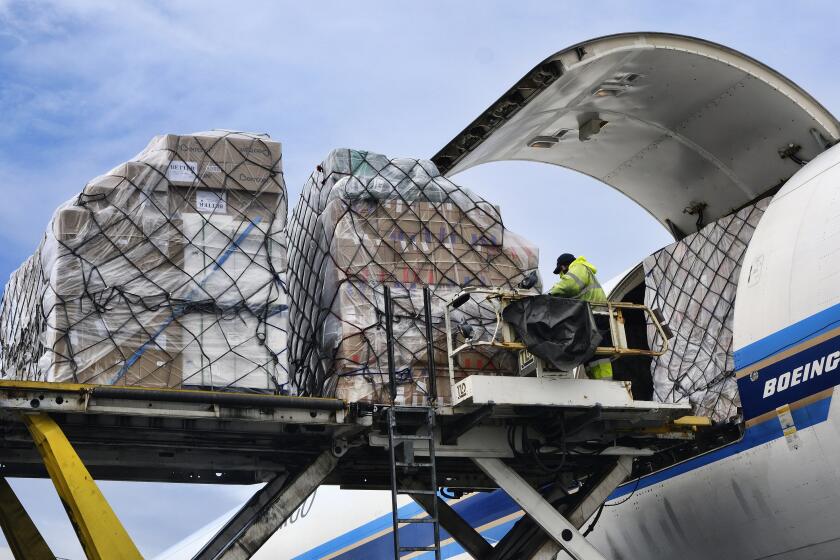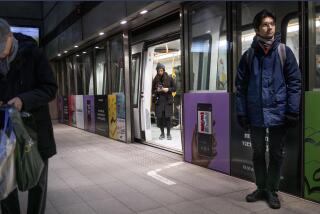As Europe reopens, key coronavirus protections remain elusive
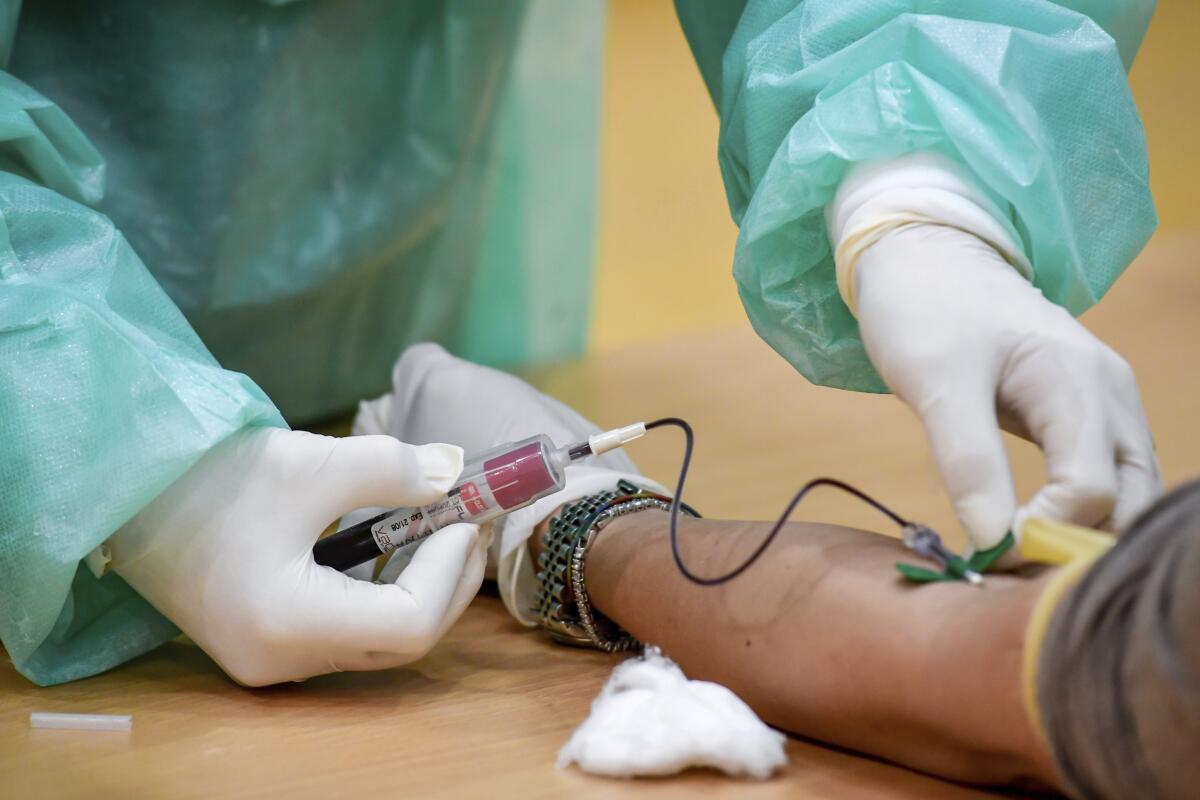
ROME — Italy’s reopening was supposed to be accompanied by a series of measures to limit infections in the onetime epicenter of Europe’s coronavirus crisis: the distribution of millions of inexpensive surgical masks to pharmacies nationwide, a pilot project of 150,000 antibody tests and, eventually, the roll-out of a contact-tracing app.
None of these is in place as Italy experiments with its second week of loosening restrictions and looks ahead to next Monday’s reopening of shops and, in some regions, bars and restaurants.
Italy’s commissioner for the emergency, Domenico Arcuri, has gone on the defensive to respond to mounting criticism of his Phase II roll-out. He insists “Italians know well what to do” to protect themselves, even if they don’t have the tests, masks, contact-tracing or other measures that public health authorities deemed necessary for Italy to reopen in safety.
“Sometimes I make mistakes for which I expect criticism and, if necessary, reprimand from Italians,” Arcuri said Tuesday. But he directed the blame at others and repeated that he was working solely in the public’s interest.
Italy is by no means alone in emerging from lockdown without all its infection-prevention pillars in place. But its problems epitomize the challenges many countries face as they seek to balance economic and healthcare needs while reassuring worried citizens.
France’s pledge to “protect, test and trace” all those who come into contact with a coronavirus patient was dealt a setback when the constitutional court threw out part of its new coronavirus law. The court objected to the contact-tracing language and ordered the government to take extreme care in protecting privacy.
French scientists say they may have identified a possible case of the coronavirus in France dating back to December.
The law, which took effect Tuesday, calls for teams of healthcare workers to trace the contacts of COVID-19 patients and share that data on a government server, with or without the patients’ consent.
French President Emmanuel Macron has also repeatedly pledged that France would be able to test up to 700,000 people per week. The national health authority told the Associated Press on Tuesday that France was averaging around 200,000 to 270,000 tests per week.
Britain, which has Europe’s highest official death toll, at more than 40,000, has ramped up testing from 5,000 a day in March to close to 100,000 now. But it abandoned contact tracing after the coronavirus’ spread overwhelmed its capacity. A contact-tracing app is in trial stages, and 18,000 people are being recruited to do the tracing legwork now.
Spain, which like Italy was among the hardest-hit countries early on, is still ironing out protocols for contact tracing and has no immediate plans to roll out an app. While Spain’s virus testing capacity has improved, the government has left contact tracing largely to already-stressed local health centers.
Germany, which has prided itself on its comparatively low death rate, has engaged more than 10,000 people in contact tracing. An app is planned but is still weeks away.
Turkey, meanwhile, has credited its army of contact tracers for its success in slowing the virus’ spread. About 5,850 teams reached out to and tested close to 470,000 people suspected of being infected.
As European governments race to develop mobile tracing apps to manage coronavirus infections, privacy remains a major concern.
Italy abandoned any concerted effort at contact tracing when its northern regions were overwhelmed with coronavirus cases and deaths in late February. But healthcare officials say contact tracing, as well as testing, protective masks and social distancing, remains key to further reopening.
Italy’s mask problem began when Arcuri, the emergency commissioner, fixed a set price for surgical masks that Italy only began producing domestically in recent weeks.
Producers balked at the low price of about 54 cents, plus tax, and two distributors that had promised to get 12 million masks to pharmacies ended up not having them ready. Another 19 million made it to supermarkets, but the pharmacy shelves remained bare.
Deputy Health Minister Pierpaolo Sileri acknowledged that the mask distribution plan had become a “mess” after three-quarters of the 12 million masks hadn’t been certified.
Federal regulators denied BYD certification after a visit to its factories in China and a review of the project’s documents.
Arcuri also promised that Italy would distribute antibody tests to labs May 4 for a pilot project of 150,000 people. As of Wednesday, testing still hadn’t begun. Further delays are expected as health authorities contact the 150,000 people identified as potential subjects, selected for their demographic and geographic distribution. They then must agree and schedule the appointment.
Arcuri insisted that his team had “done our part” by selecting the type of test and said delays were due to review by the government’s privacy guarantor.
He also said another 5 million virus test kits were being distributed to Italian regional health authorities to help boost capacity and isolate new possible clusters.
Italy was stymied during the outbreak by testing limitations, and ended up only testing those who went to the hospital or were showing strong symptoms. It has increased capacity and now leads Europe in per-capita testing, with more than 2.5 million tests conducted to date.
But regional officials say they can’t conduct more tests because they didn’t receive the extra reagent necessary to process the results.
Like other European governments, Italy has been racing to develop a contact-tracing app. Like many others in Europe, the “Immuni” app will be based on a decentralized system using an Apple-Google software interface that experts say is better at preserving privacy. The apps use Bluetooth signals on cellphones to anonymously track users who come nearby, and send an alert if any users test positive.
“We are working in your interests,” Arcuri said. “We accept all criticism as long as it’s constructive.”
More to Read
Sign up for Essential California
The most important California stories and recommendations in your inbox every morning.
You may occasionally receive promotional content from the Los Angeles Times.
